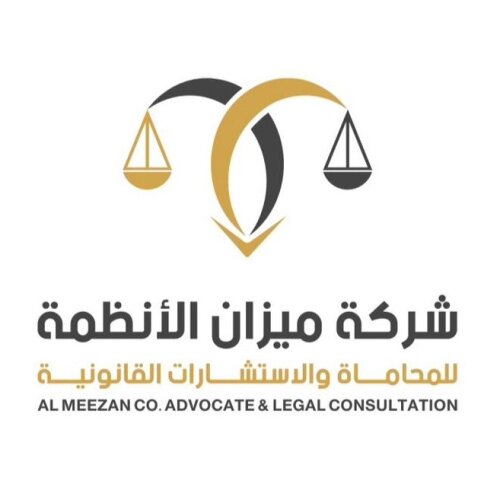Best Housing, Construction & Development Lawyers in Makkah
Share your needs with us, get contacted by law firms.
Free. Takes 2 min.
Free Guide to Hiring a Real Estate Lawyer
List of the best lawyers in Makkah, Saudi Arabia
About Housing, Construction & Development Law in Makkah, Saudi Arabia
The city of Makkah is not only a spiritual hub but is also experiencing tremendous growth and development. The field of housing, construction, and development in Makkah, Saudi Arabia is governed by a complex legal framework. Under the auspices of Vision 2030, the city is undergoing a transformation to accommodate the growing population and visitors each year. This involves strict regulations related to land use, zoning, environmental compliance, and residential and commercial construction projects. The Saudi Arabian government has established protocols to ensure that infrastructure development aligns with the sacred and historical significance of Makkah while promoting sustainable growth.
Why You May Need a Lawyer
Engaging a lawyer when dealing with housing, construction, and development matters in Makkah can be invaluable. Common situations that call for legal assistance include:
1. Navigating regulatory approvals for new construction projects.
2. Handling disputes regarding land ownership or tenancy rights.
3. Ensuring compliance with local zoning and land use laws.
4. Drafting and reviewing contracts for sale, lease, or construction agreements.
5. Addressing environmental regulations and heritage conservation guidelines.
6. Responding to government notices or penalties.
7. Representation in litigation arising from construction defects or delayed projects.
Local Laws Overview
In Makkah, housing, construction, and development are subject to a stringent legal framework. Here are key aspects to consider:
Land Use Regulation: Governed by the Ministry of Municipal and Rural Affairs, land use laws determine permissible activities on different types of land areas.
Building Codes: These codes stipulate standards for construction safety, design, and functionality in line with national and local regulations.
Zoning Laws: Zoning is crucial to maintain the cultural and religious significance of Makkah. Specific zones may have restrictions on height, design, and usage of buildings.
Environmental Regulations: Environmental laws are enforced to protect natural resources and ensure sustainable development.
Heritage Conservation: Special laws preserve historical sites and structures, impacting development plans and construction projects in the vicinity of heritage areas.
Frequently Asked Questions
What permits are needed for residential construction in Makkah?
Obtaining a construction permit requires compliance with local building codes and environmental regulations. Developers must submit plans to relevant authorities for approval.
Can foreigners own land in Makkah?
Generally, foreign ownership of land in Makkah is restricted, but certain exceptions exist for investors possessing special permissions or government approvals.
How are construction disputes resolved?
Disputes are typically resolved through negotiation or mediation. If these methods fail, cases may be escalated to the local courts or arbitration bodies.
What are the environmental considerations for new developments?
Developments must adhere to environmental standards, including waste management, energy efficiency, and minimization of ecological impacts, as per Saudi Environmental Law.
What roles do local municipalities play in development projects?
Local municipalities are responsible for approving project plans, conducting inspections, and ensuring adherence to building standards and zoning laws.
Is there a process for appealing a denied construction permit?
Yes, applicants can appeal to a higher administrative authority or seek legal recourse through the administrative court system if a construction permit is denied.
What is the significance of zoning laws in Makkah?
Zoning laws categorize land into specific uses and govern development activities to protect the sanctity and historical integrity of religious sites in Makkah.
Are there specific construction materials mandated by law?
Construction materials should meet the standards set by the Saudi Building Code, ensuring durability and adherence to safety requirements.
How do property taxes affect housing development?
Property taxes, regulated by the Zakat, Tax and Customs Authority, can influence the cost of real estate projects and are considered in overall project planning.
What steps should be taken if a construction project is delayed?
Addressing project delays typically involves reviewing contractual obligations, identifying the cause of delays, and negotiating resolutions with contractors or stakeholders.
Additional Resources
For more information, individuals can consult the following resources:
Ministry of Housing: Responsible for residential policies and provides guidelines for housing-related developments.
Saudi Contractors Authority: Offers support and resources for those in the construction industry.
Makkah Region Development Authority: Provides oversight and approvals for development projects within the region.
Next Steps
If you require legal assistance in the area of housing, construction, and development in Makkah, consider the following steps:
1. Research and consult with attorneys specialized in real estate and construction law in Saudi Arabia.
2. Prepare all necessary documents related to your case, such as contracts, permits, and correspondence.
3. Schedule a consultation to discuss your situation and explore possible legal solutions.
4. Consider alternative dispute resolutions, such as mediation, if applicable.
5. Stay informed about relevant legal updates and guidelines by engaging local legal experts.
Lawzana helps you find the best lawyers and law firms in Makkah through a curated and pre-screened list of qualified legal professionals. Our platform offers rankings and detailed profiles of attorneys and law firms, allowing you to compare based on practice areas, including Housing, Construction & Development, experience, and client feedback.
Each profile includes a description of the firm's areas of practice, client reviews, team members and partners, year of establishment, spoken languages, office locations, contact information, social media presence, and any published articles or resources. Most firms on our platform speak English and are experienced in both local and international legal matters.
Get a quote from top-rated law firms in Makkah, Saudi Arabia — quickly, securely, and without unnecessary hassle.
Disclaimer:
The information provided on this page is for general informational purposes only and does not constitute legal advice. While we strive to ensure the accuracy and relevance of the content, legal information may change over time, and interpretations of the law can vary. You should always consult with a qualified legal professional for advice specific to your situation.
We disclaim all liability for actions taken or not taken based on the content of this page. If you believe any information is incorrect or outdated, please contact us, and we will review and update it where appropriate.













